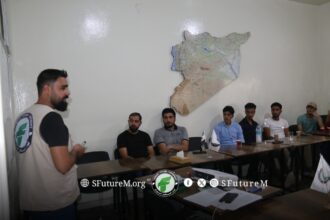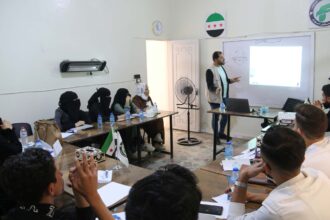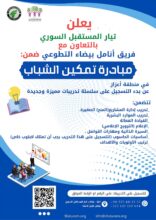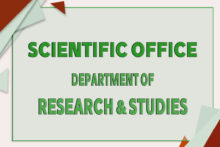Modern parenting for children, A way of life, not a luxury.
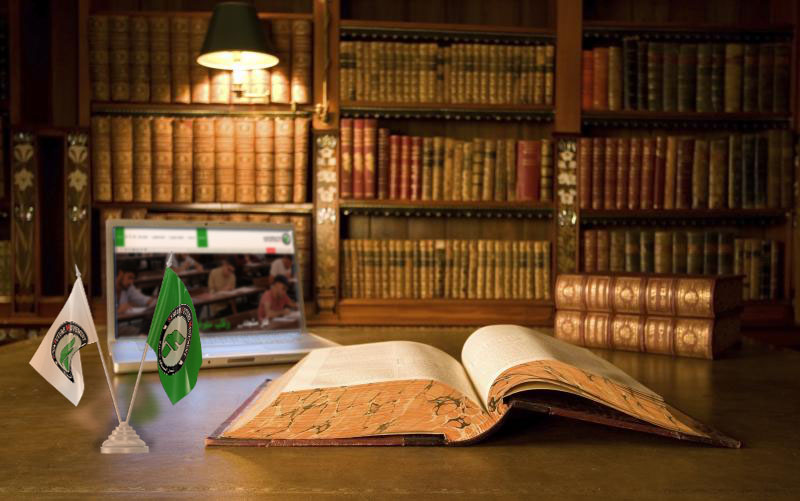
Introduction:
Modern parenting is defined as the educational process that produces good and active individuals. It is the process in which parents utilize all their resources to ensure their children are psychologically and socially healthy. This approach provides a suitable learning environment for children, helping them keep up with life’s developments, while avoiding direct instruction, punishment, and harsh discipline.
Modern parenting is a comprehensive approach aimed at developing well-rounded personalities capable of facing contemporary challenges. Instead of focusing on traditional methods like rote learning, modern parenting emphasizes:
- Active learning, encouraging children to explore and interact with the world around them.
- Critical and creative thinking, fostering children’s ability to solve problems, analyze information, and develop new ideas.
- Social and emotional skills, teaching children how to interact with others, express their feelings, and manage relationships.
- Using technology as a learning tool to enhance education and engagement.
- Lifelong learning, instilling in children the value of continuous education and encouraging them to acquire new knowledge and skills throughout their lives.
Many theorists and thinkers have contributed to the development of modern education. Some prominent names include:
- John Dewey, one of the most influential educational philosophers of the 20th century, who emphasized experiential learning and learning through experience.
- Maria Montessori, who developed the Montessori method, focusing on self-directed learning and a specially prepared environment tailored to children’s needs.
- Jean Piaget, known for his theories on children’s cognitive development, which have significantly impacted modern teaching methods.
- Lev Vygotsky, who highlighted the importance of social interaction in learning and established the theory of the zone of proximal development.
- Howard Gardner, who introduced the theory of multiple intelligences, suggesting that various types of intelligence should be considered in education.
These thinkers, among others, have shaped the concepts and methods of modern education, which emphasize the holistic and balanced development of the child.
Significance:
Like any life approach, modern education is built on several key pillars, including:
- The individual at the center of the educational process: Respecting each child’s individuality and meeting their unique needs.
- Learning through play: Using play as an effective tool to teach children and develop their skills.
- Collaboration and social interaction: Encouraging teamwork and effective communication between children.
- Continuous assessment: Monitoring children’s progress and providing necessary support.
- The role of family and community: Involving the family and community in the educational process.
Through these principles, the importance of modern education is evident in:
- Preparing generations capable of facing future challenges: Equipping children with the skills and knowledge needed to succeed in an ever-changing world.
- Developing balanced and happy personalities: Fostering self-confidence, creativity, and adaptability.
- Building more just and tolerant societies: Instilling moral and social values in children.
The Importance of Modern Education:
Modern education for children aims to develop their personalities in a balanced and healthy way, focusing on psychological and social aspects. Some principles and methods used in modern education include:
- Belief in children’s potential by encouraging them to have confidence in themselves and their abilities.
- Avoiding comparisons between children and their peers, focusing instead on developing their individual skills.
- Setting clear rules for daily behaviors.
- Allowing children to experience their childhood by letting them play and explore freely.
- Permitting them to experience failure to learn how to cope with it.
- Using positive reinforcement to encourage good behavior with praise and rewards, while avoiding harsh punishment.
- Treating children with kindness and respect, avoiding direct commands and harshness.
Through these methods, modern education plays a crucial role in fostering balanced and healthy child development.
Reasons Why Modern Education is Important:
- Building self-confidence: Modern education helps children build confidence by encouraging them to express their opinions and try new things.
- Promoting independence: By encouraging children to make their own decisions and take responsibility for their actions, it fosters independence.
- Developing social skills: It teaches children how to interact positively with others, helping them build healthy relationships.
- Teaching values and ethics: It emphasizes teaching moral values such as respect, cooperation, and empathy.
- Helping children adapt to challenges: It prepares them to face changes and challenges in their lives.
- Encouraging a love for learning: By fostering curiosity and exploration, it helps children succeed academically and professionally.
The Difference Between Modern and Traditional Education:
A. Traditional Education:
- Focus on obedience and discipline: It emphasizes teaching children obedience and discipline through strict rules and punishments.
- Rote memorization: Heavily relies on rote learning, with the teacher being the primary source of information.
- Directed learning: Children are guided directly by teachers and parents, with little freedom to make decisions.
- Focus on academic results: Prioritizes academic results and grades over the development of personal and social skills.
- Group-oriented education: Education is often directed toward the group rather than the individual, emphasizing conformity to social norms.
B. Modern Education:
- Focus on personal development: Aims to nurture the child’s personality in a balanced way, focusing on psychological and social aspects.
- Active learning: Encourages active learning and engagement, with the child playing an active role in the learning process.
- Freedom and independence: Grants children more freedom to make decisions and take responsibility for their actions.
- Comprehensive education: Values the development of personal and social skills alongside academic achievements.
- Individualized education: Focuses on the needs of the individual and the development of unique skills, respecting differences between children.
About the Schools:
Modern education schools are institutions that adopt advanced teaching methods and curricula aimed at holistic student development. These schools focus on the academic, psychological, and social aspects of students. Some examples of modern education schools that teachers can benefit from include:
- Montessori Schools, which follow the Montessori method, emphasizing self-directed learning and exploration in an environment tailored to children’s needs.
- Waldorf Schools, which focus on nurturing children’s creativity and imagination through artistic, musical, and craft activities.
- Reggio Emilia Schools, which rely on project-based learning and hands-on experiences, encouraging collaboration among students.
- International Schools, offering curricula like the International Baccalaureate (IB) or the American curriculum, emphasizing critical thinking and cross-cultural communication.
- Blended Learning Schools, combining traditional and online education, allowing students to learn in diverse and innovative ways.
These schools strive to create a stimulating educational environment that supports students’ overall growth and prepares them to face future challenges.
Opinions and Perspectives:
There are differences among modern education specialists on various aspects. These differences arise from the diversity of educational philosophies and teaching methods embraced by each expert. Some points where specialists’ opinions may differ include:
- Teaching methods: Some prefer active learning and interaction-focused methods, like Montessori, while others favor project-based and experiential learning methods like Reggio Emilia.
- The role of the teacher: Some believe the teacher should act as a guide, while others think the teacher’s role should be more directive.
- Evaluation and testing: Opinions vary on how to assess student progress; some prefer continuous assessment and feedback, while others support traditional exams and grades.
- Technology in education: There are differing views on the extent of technology’s use in education; some see it as a crucial tool for enhancing learning, while others caution that it may distract students if not used wisely.
- Comprehensive vs. specialized education: Some specialists favor comprehensive education focusing on the overall development of the child, while others support specialized education targeting specific skills.
These differences reflect the variety of educational philosophies and methods, which can be beneficial in different contexts.
Disadvantages:
Despite the numerous benefits of modern education, it is not without its drawbacks. Some potential disadvantages include:
- High cost: Modern education requires significant financial resources to provide an advanced learning environment, such as technological devices and modern educational materials, in addition to teacher training.
- Over-reliance on technology: Heavy reliance on technology can reduce personal interaction between teachers and students, potentially affecting children’s social skill development.
- Challenges in assessment: Accurately assessing student progress using modern methods focused on active learning and projects can be more difficult compared to traditional tests.
- Boredom and lack of engagement: Sometimes, students may feel bored due to the lack of personal interaction and excessive use of technological tools.
- Inequality in access: Not all families can afford the costs of modern education, leading to disparities in educational opportunities among children.
These drawbacks do not suggest that modern education is ineffective but highlight the need for a balance between modern and traditional methods to achieve the best results for children.
Challenges of Modern Education in Syria:
Modern education in Syria faces several challenges that hinder its effective implementation. These challenges include:
- Lack of funding: The education system in Syria suffers from severe underfunding, affecting the quality of education and the provision of necessary resources.
- School dropout rates: A large percentage of children are out of the education system due to difficult economic conditions, with many forced to work instead of attending school.
- Shortage of qualified teachers: There is a lack of qualified and trained teachers in modern education methods, which impacts the quality of teaching.
- Damaged infrastructure: Many schools have been destroyed or need repair, making the learning environment unsuitable.
- Security and political challenges: Ongoing conflicts and political instability significantly disrupt education, with schools sometimes being targeted or repurposed for non-educational uses.
- Curriculum disparities: The presence of different curricula in areas controlled by various factions leads to discrepancies in education quality and a lack of mutual recognition of certificates.
Addressing these challenges requires significant efforts from the various governing authorities and international and local organizations to improve the educational situation in Syria and ensure that all children receive a quality and sustainable education.
Necessary Steps:
Encouraging schools and parents to adopt modern educational methods requires an integrated effort and cooperation between various stakeholders. Some strategies that can help achieve this include:
A. For Schools:
- Providing continuous teacher training: Organizing workshops and training sessions to familiarize teachers with modern educational methods and how to apply them effectively in the classroom.
- Improving infrastructure: Equipping schools with technology and modern educational resources that support interactive and active learning methods.
- Encouraging innovation: Supporting educational initiatives that focus on innovation and creativity, such as science and art projects that enhance critical thinking and creativity in students.
- Continuous evaluation: Using diverse assessment methods to focus on students’ overall progress, not just traditional academic performance.
B. For Parents:
- Awareness and education: Organizing workshops and awareness programs to educate parents on the importance of modern education and how to support their children at home.
- Providing resources: Offering educational resources, such as books and educational games, to help parents apply modern educational methods at home.
- Ongoing communication with schools: Strengthening communication between parents and schools to ensure children’s progress is monitored, and necessary support is provided.
- Encouraging self-learning: Supporting children in exploring their interests and creating a home environment that fosters self-directed learning and discovery.
C. Collaboration Between Schools and Parents:
- Joint events: Holding joint events between schools and parents to promote collaboration and understanding between both parties.
- Educational communities: Establishing learning communities that include teachers and parents to share ideas, experiences, challenges, and solutions related to modern education.
These strategies can contribute to the effective dissemination and application of modern educational methods, improving the quality of education and fostering the comprehensive development of children.
Inspirational Programs:
There are many programs and initiatives that Syria can benefit from to enhance modern education and improve the quality of learning. Some examples include:
- “Education for All” program: Supported by UNESCO, this program aims to provide basic education to all children, regardless of their economic or social circumstances. Syria can benefit from this program to develop inclusive curricula and provide teacher training.
- “Education in Emergencies” program: Supported by international organizations like UNICEF and the UNHCR, this program aims to provide education for children in conflict and crisis zones. Syria can utilize this program to ensure the continuity of education despite difficult conditions.
- “E-Learning Initiatives”: Various initiatives focus on using technology in education, such as platforms like Coursera and edX, which offer online courses. Syria can benefit from these platforms to provide diverse and innovative educational resources for students and teachers.
- “Inclusive Education” program: This program aims to integrate children with special needs into the general education system. Syria can adopt this approach to develop policies and practices that support all children, regardless of their specific needs.
- “Education for Sustainable Development” initiative: Supported by the United Nations, this initiative promotes education focused on sustainable development and environmental protection. Syria can also benefit from this initiative by developing curricula that emphasize sustainability and environmental awareness.
These programs and initiatives can provide a strong framework for improving the quality of education in Syria and advancing the application of modern educational methods.
Additionally, many programs and initiatives that have benefited other countries could serve as models for Syria. Some examples include:
- “Education for All” program in Bangladesh: Supported by UNESCO, this program succeeded in increasing school enrollment rates and improving education quality by providing teacher training and developing curricula.
- “Education in Emergencies” initiative in Jordan: Supported by international organizations like UNICEF, this initiative provided education for Syrian refugee children, helping ensure continued learning under difficult circumstances.
- “E-Learning Initiatives” in India: Platforms like DIKSHA provided diverse educational resources for students and teachers, helping improve the quality of education and reach remote areas.
- “Inclusive Education” in Finland: Finland is a leader in inclusive education, integrating children with special needs into the general education system, thus promoting equal educational opportunities.
- “Education for Sustainable Development” in Germany: Germany developed curricula that focus on sustainability and environmental awareness, helping promote education centered on sustainable development and environmental protection.
These examples show how countries can benefit from international programs and initiatives to improve the quality of education and apply modern educational methods.
Conclusion:
We must agree that education and upbringing are intertwined and inseparable. Therefore, emphasis should be placed on the development of schools and curricula. It is equally important to recognize that parents are a crucial part of the educational process. For this reason, it is essential to foster collaboration between schools and parents to promote modern educational approaches.
Team of the Family Affairs Office
Research and Studies Department
Studies
Syrian Future Movement (SFM)
References:
- How developing countries can benefit from global collaboration.
- How the U.S. Can Learn from Other Countries Reform: Thomas Rice.
- How US welfare compares around the globe – BBC News.
- National Innovation Policies: What Countries Do Best and How They Can Improve.
- 2021 Humanitarian Needs Overview: Syrian Arab Republic.
- 10 Bold Solutions Helping Syrians a Decade Into the Conflict.
- 2021 Humanitarian Needs Overview: Syrian Arab Republic (March … – UN-OCHA.
- Learn about modern education methods with Al-Madrasa.com.
- Challenges of education in Syria: Another academic year on the road to restoration.
- Education in Syria: Challenges and Solutions – A Case Study of Northwest Syria.
- Education in Northeast Syria (Challenges and Responses Amid the COVID-19 Pandemic).
